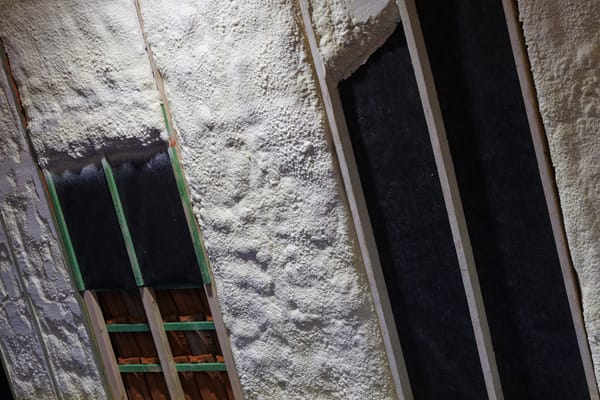Achieving net-zero carbon emissions is no longer a distant goal for businesses—it’s an immediate priority. As industries worldwide grapple with rising energy costs and stricter environmental regulations, insulation has emerged as a crucial component of sustainable infrastructure. Proper insulation significantly reduces energy consumption, enhances operational efficiency, and contributes to overall carbon reduction efforts. Among the most effective solutions, spray foam pole barn insulation stands out for its exceptional thermal performance and versatility. It provides superior energy retention, making it a popular choice for commercial buildings looking to cut emissions while optimizing costs.
How Insulation Contributes to Net-Zero Goals
A net-zero future requires businesses to reduce their carbon footprints without compromising productivity. Insulation plays a pivotal role in this transformation by minimizing the need for excessive heating and cooling. According to the U.S. Department of Energy, poorly insulated buildings account for nearly 40% of total energy consumption worldwide, highlighting the urgent need for better thermal management solutions.
Modern insulation materials, including spray foam, mineral wool, and reflective barriers, provide businesses with an opportunity to drastically reduce their energy expenditure. By improving building envelopes, companies can lower reliance on HVAC systems, reduce greenhouse gas emissions, and take significant strides toward sustainability. This not only leads to lower operational costs but also increases the lifespan of heating and cooling systems, reducing the frequency of repairs and maintenance expenses.
Furthermore, insulation contributes to better indoor air quality, as well-sealed spaces prevent pollutants, allergens, and humidity from infiltrating business environments. This is particularly beneficial for industries that rely on sterile or controlled atmospheres, such as pharmaceutical companies, technology manufacturers, and data centers.
The advantages of spray foam insulation
While traditional insulation materials like fiberglass and cellulose have been widely used, spray foam insulation offers distinct advantages:
- Superior Energy Efficiency: Spray foam insulation expands upon application, sealing gaps and cracks that traditional materials may leave exposed. This leads to higher R-values (a measure of thermal resistance), ensuring buildings remain well-insulated year-round.
- Moisture and Mold Resistance: Unlike conventional insulation, spray foam creates an airtight barrier that prevents moisture buildup, reducing the risk of mold growth and structural damage. This feature is especially crucial for businesses operating in humid climates or industries where moisture control is a key operational requirement.
- Longevity and Durability: With a lifespan exceeding 30 years, spray foam outlasts many traditional insulation materials, making it a cost-effective, long-term investment for businesses. Additionally, its structural rigidity provides extra support to buildings, reducing long-term wear and tear.
Insulation’s role in reducing business costs
Energy efficiency is directly linked to cost savings. Studies have shown that businesses investing in high-performance insulation can cut energy bills by up to 50%. This not only improves financial sustainability but also enhances corporate social responsibility (CSR) initiatives by demonstrating commitment to environmental stewardship.
Many governments worldwide, including the UK, offer tax incentives and grants for businesses implementing energy-efficient solutions. Programs such as the UK’s Energy Savings Opportunity Scheme (ESOS) encourage businesses to assess and optimize their energy usage, with insulation upgrades often ranking among the most impactful recommendations (UK Government ESOS Scheme).
Aside from direct energy savings, well-insulated buildings also experience lower maintenance costs. HVAC systems operate more efficiently when buildings maintain stable indoor temperatures, reducing the frequency of costly breakdowns and repairs. This can be particularly beneficial for businesses with large facilities, warehouses, or manufacturing plants where energy expenses make up a significant portion of operational costs.
The future of sustainable business practices
As the push toward net-zero intensifies, businesses must explore all avenues to reduce their environmental impact. Insulation is a practical yet powerful solution that contributes to energy efficiency, cost savings, and regulatory compliance. Companies investing in sustainable insulation solutions are better positioned to future-proof their operations against rising energy costs and tightening environmental regulations.
Beyond financial and environmental benefits, improving insulation also enhances employee productivity. Studies have shown that workplaces with stable, comfortable temperatures lead to higher employee satisfaction and productivity. Poor insulation can result in fluctuating indoor temperatures, making it harder for employees to focus and increasing absenteeism due to discomfort-related health issues.
For businesses looking to take actionable steps toward net-zero, investing in high-performance insulation is no longer optional—it’s essential. Those that embrace innovative insulation methods now will reap long-term rewards, not only in cost reductions but also in creating a more sustainable and resilient business model for the future.






Leave a Comment